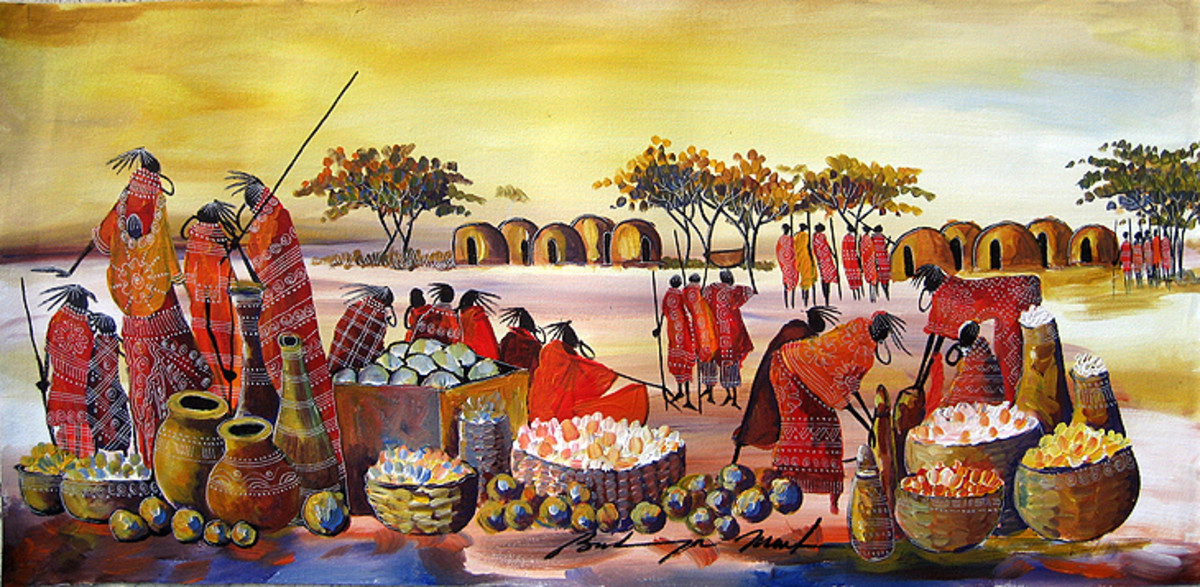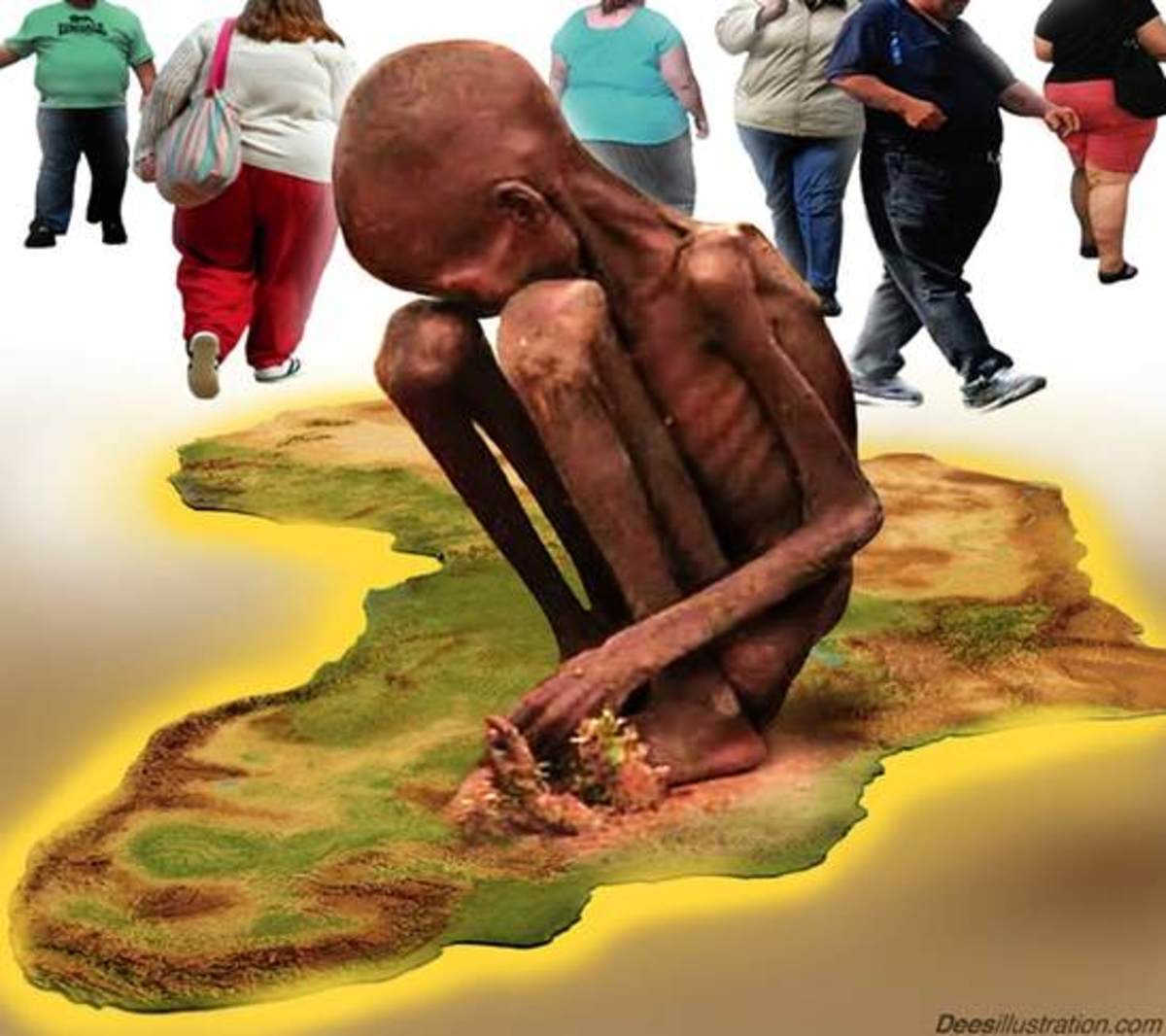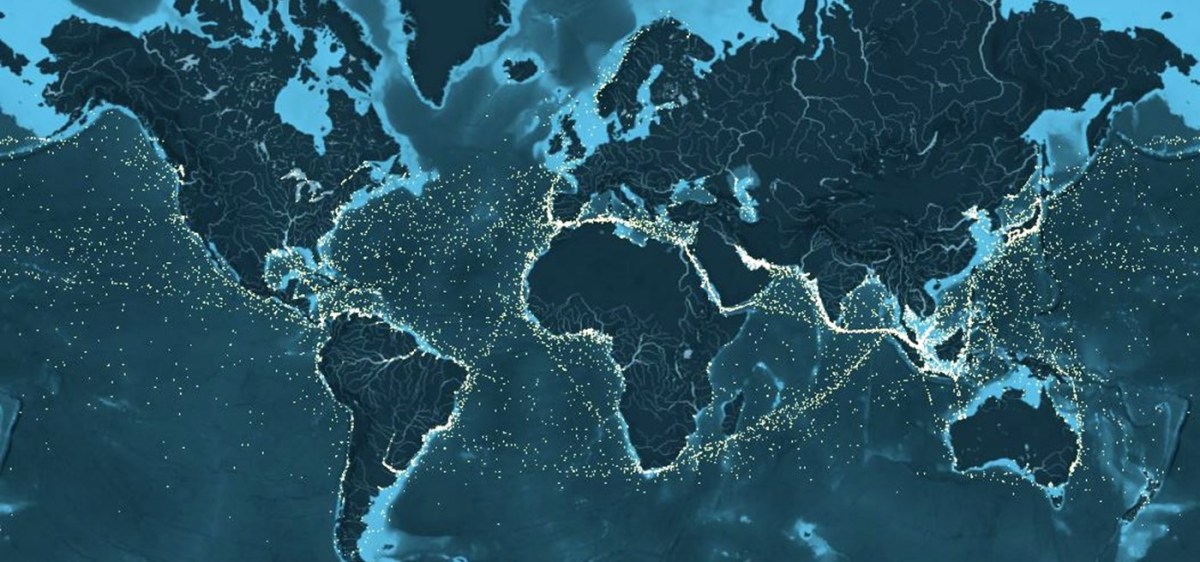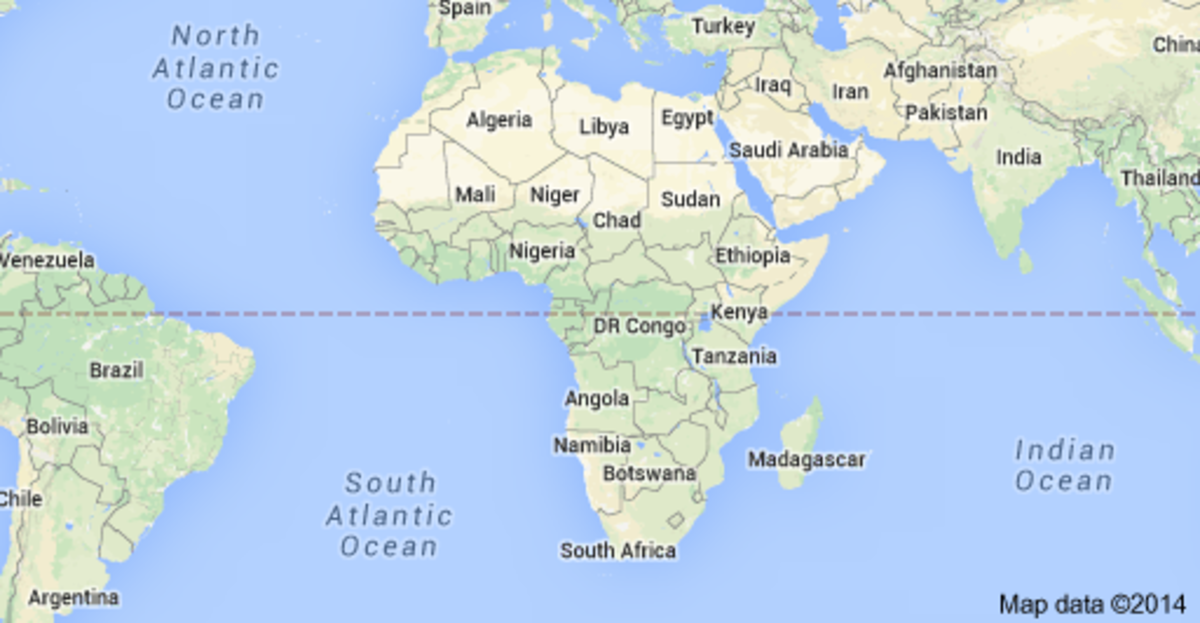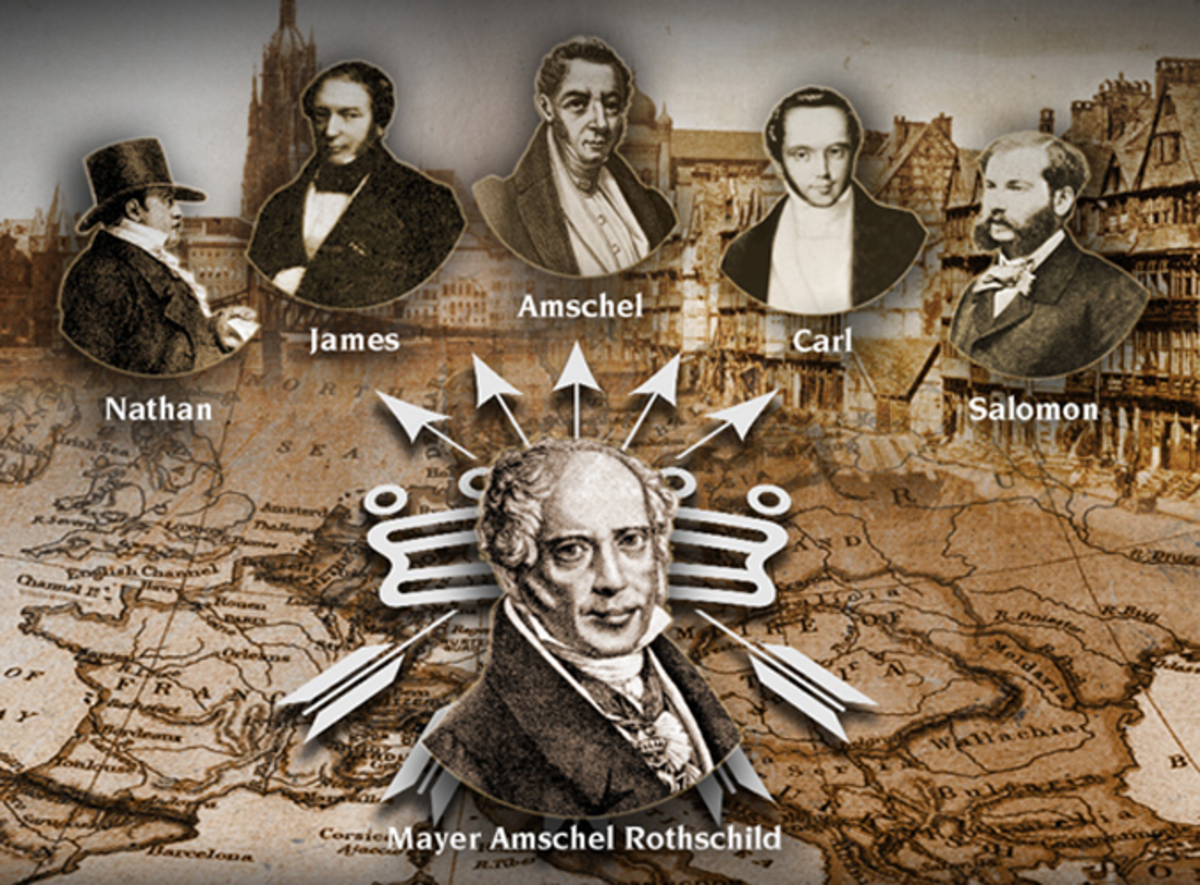Africa Stripped – China’s Scramble for Natural Resources
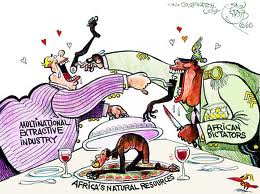
Parallels have been drawn between China’s aggressive investment in Africa with the 1880s scramble for Africa by European nations. Proponents of this school of thought have argued that there is no difference between Chinese investment in Africa and what European colonizers did over a century ago. The opposite school of thought disagrees with the notion that Africa is being stripped - instead arguing that China has allowed many African countries to make quantum leaps in infrastructural development – a key ingredient for economic development.
It’s an open secret that China now has the second largest economy after the United States. This is hardly surprising and it was expected that at some point in the last decade China would overtake Japan. Of interest is China’s meteoric rise - the speed and clinical efficiency with which it has grown as well as the fact that China is, by and large, still a developing country. According to statistics from the World Bank, the Chinese economy has consistently grown by between 5% and 15% annually, over the last 30 years. Other than India and the ‘Asian Tiger’ economies, few other nations have been able to sustain such a prolific growth rate. In 2011, China became the world’s top manufacturer. It is also the largest exporter of goods and second largest importer of goods in the world.
Fuelling the Growth
Such impressive growth can only be sustained by having access to vast amounts of natural resources. Its huge manufacturing industry needs raw materials for production. Many of the sources of raw materials within China have either been depleted, overused or are headed for depletion. To fuel further growth, China has had to look beyond its borders for raw materials. Over the last two decades China has tightened her links with Africa in order to feed her thriving economy. Through a series of lighting fast manoeuvres, China has secured exclusive deals to purchase natural resources such as oil, natural gas, iron ore, copper, gold and a host of other minerals from several African countries. Deals have also been struck for the supply of arable land. China, with a population of 1.3 billion people, requires vast tracts of arable land to satisfy the demands of increasingly sophisticated diets back home.
The best example of Sino-African trade partnerships is Angola. Angola is currently China’s largest trade partner in Africa. Trade between the two nations was in excess of $25 billion in 2010 and the bulk of this trade was oil imports by China. Angola is currently the biggest oil supplier to China having overtaken Saudi Arabia in 2008.
Though China’s imports from Africa comprise about 80% raw materials, increasingly, it also now includes agricultural and manufacturing products such as oranges from Egypt, Olive oil from Tunisia, Wine from South Africa, Tea and Coffee from Kenya and Ghanaian cocoa beans.
Trade Policies
China is now Africa’s largest trading partner and surprisingly has a trade deficit in favour of Africa. Africa as a whole, exports more to China than it imports. In order to promote trade with the continent, China has bilateral trade agreements with 45 countries in Africa. Many of these agreements include zero tariff preference for Chinese firms.
One of the ways China has been able to secure exclusive deals for natural resources is by helping African nations develop much needed infrastructure. In exchange for exclusive access to mineral resources China helps build roads, hydro power projects, airports, bridges and other major projects. They also provide loans at preferential terms to help finance infrastructure projects. Many of these loans have also been written off in a bid to help African countries reduce their debt burden. Between 2000 and 2009, China wrote off over 18.9 billion Yuan owed to it by 35 African countries.
While pursuing trade deals in Africa, China has a strict policy of non-interference with local politics and governance. Thus, they rarely insist on democracy and good governance only focusing on the merits of the deal.
Negative Impact
This pragmatic approach has made it a darling with despots like Zimbabwe’s Robert Mugabe. Without Chinese money, the government of Robert Mugabe would have collapsed due to economic sanctions from the West. In early 2009, Zimbabwe secured $950 million in credit from China to help rebuild the devastated economy.
In addition to looking only at the ‘business side’ of things, China has been accused of fuelling corruption in Africa. Media reports from respected media institutions (1, 2, 3) have reported Chinese companies paying millions of dollars in kickbacks to procurement officials in order to win contracts. Leaked US diplomatic cables from Kenya paint a picture of exasperation by American officials with the manner in which Chinese companies were doing business in Kenya. There are claims of massive bribery, coercion and cut-throat pricing in order to win lucrative government contracts.
Western nations are not particularly amused by China’s policy of looking the other way. African intellectuals have also voiced their concern about China’s apparent disinterest in good governance arguing that it is the people who suffer when corrupt leaders use Chinese money and goodwill to hang onto power. A case in point is Darfur where donor agencies have long been pointing an accusing finger at China. Experts on the Darfur crisis suggest that the conflict would have been resolved a long time ago were it not for China’s interest in Sudanese oil. China would effectively veto any UN Security Council Resolution against Sudanese president Omar El Bashir.
China’s policy of non-interference is also reflected in the way Chinese companies and businessmen do business in Africa. Chinese firms are rarely ever held to account for any misdeeds. Unlike many other countries which have strict foreign business practice laws, China has no such laws or regulations. In essence, Chinese firms operate with a free hand. The best example of this is trade in endangered species, specifically, trade in ivory. China has had a traditional passion, even obsession, with ivory ornaments. Ivory is in great demand in China and given its huge population, demand from even 1% of its population is enormous. This is in spite of the fact that ivory has been banned globally since 1989 after decades of unbridled poaching during which the African Elephant herd was decimated to only about 600,000 in 1997. Despite the ban, Chinese expatriates working in Africa have engaged in the trade. In fact, most African countries with a large Chinese expatriate community have reported an increase in Elephant poaching. Illegal ivory is exported to China where it is processed, mainly in the city of Guangzhou. There is little evidence to show that China is cracking down on illegal ivory traders despite reassurances to the contrary by Chinese authorities who regulate the trade.
In the area of rare earth minerals, many nations are now grumbling about Chinese control of the production of about 90% of rare earth minerals. China’s aggressive push into Africa has seen it control trade in strategic minerals used to manufacture key weapons components, warships, aircraft and high tech devices such as mobile phones. For example, Gecamines, the state mining company in the Democratic Republic of Congo (DRC) prefers to deal with China over other countries. The DRC is one of the world’s largest sources of rare earth minerals such as cobalt, coltan, tungsten, tin and uranium. Zambia’s cobalt deposits are second only to the DRC and comprise 20% of global deposits; Zambia has also been favouring Chinese firms for mining contracts. Namibia, which is the world’s fourth largest producer of Uranium, is receiving technological assistance from the Chinese Shandong Zhengyuan Geological Exploration Institute through Epangelo, the state mining corporation. In South Africa, Jacob Zuma’s ANC government is under tremendous pressure from mining unions and the ANC Youth League to nationalize 60% of mines. Nationalization would effectively allow the Chinese to exercise control through strategic partnerships with state mining corporations. This kind of control over strategic resources is dangerous from the point of view of global peace and security. Global security analysts point out that this could be a source of military conflict in the future and China has already demonstrated its power over other nations in this regard. Only recently, Chinese firms were ordered not to sell minerals to Japan due to a stand-off over the Senkaku/Daioyu Islands. China has also threatened on several occasions to withhold mineral sales to the United States due to what it claims are arms sales to Taiwan.
On environmental issues, China scores low in Africa. Many infrastructural projects have run into trouble with environmental activists, non governmental agencies and UN bodies. The best example of negative environmental impact is Ethiopia’s Gibe III hydro power dam. The dam is currently under construction on River Omo in Southern Ethiopia and once completed; it will be the largest hydro electric power plant in Africa with a power output of 1870 Megawatts. However, the project became tied-up in controversy after the African Working Resources Group (AWRG), a non governmental grouping of experienced researchers and professionals took issue with the environmental and social impact assessment report. AWRG noted that the report was neither thorough nor objective and further stated that the data (both qualitative and quantitative) was selected with the pre-determined objective of giving the project a seal of approval. In June 2011, UNESCO called for a halt in construction until further assessment could be carried out. The bone of contention is Lake Turkana, a World Heritage Site, in Northern Kenya (Kenya’s borders Ethiopia to the South). Lake Turkana straddles the border between Ethiopia and Kenya. River Omo drains into Lake Turkana and experts claim construction of Gibe III will be catastrophic for the lake. According to a study by AWRG, river flow volume will decrease by between 57 and 60%. They also state that the seasonality and timings of water flow will significantly interfere with the entire Omo River and Turkana Ecosystems. It is estimated that around half a million people living around the lake depend on it for their livelihood through fishing and tourism. It is also estimated that another 200, 000 people depend on the River Omo, downstream from the site of the dam. Thus, almost a million people will have their lives disrupted once the dam is complete. The electrical and mechanical equipment for the dam are being provided by Dongfang Electric Machinery Corporation which is a Chinese state owned corporation. The agreement to provide the electrical and mechanical equipment is backed by a $500 million loan from the Industrial and Commercial Bank of China. The transmission lines from Gibe III to Ethiopia’s capital Addis Ababa are being financed by the Exim Bank of China and will be constructed by Tebian Electric Apparatus Stock Company of China.
On the social side of things, China is said to be creating consumer societies in Africa. Leading African scholars such as Prof Yelpaala who teaches at the University of Pacific in San Francisco have lambasted politicians for taking Chinese contracts at face value. China buys raw materials from Africa, manufactures finished goods and sells them to Africa. Thus, even though the trade deficit is in favour of Africa, African imports are more balanced whereas Chinese imports comprise 80% raw materials. Many will also agree that China rarely transfers technology; on a typical construction project, all the key personnel will have been shipped in from China. In some cases, even cooking and other menial tasks are handled by Chinese staff.
Positive Impact
China has single-handedly helped many African nations meet their infrastructural development goals. Being a developing country, China understands the unique needs to African countries in this area. Governments need to build cheap, high quality infrastructure and they need it done fast. Chinese firms are able to offer strategic partnerships, better prices and their work rate is phenomenal. Many projects run by Chinese firms are worked on day and night. Workers run on shifts and the result is that a road project that would have taken a year to complete is done in six months. All over Africa, there has been a massive improvement in roads, railways, airports, telecommunications, dams, bridges, housing and much more – all thanks to the Chinese. This has had a positive impact on foreign direct investment from other countries. Foreign capital inflows have led to job creation, higher tax revenues for governments and currency stabilization in many African nations. The private sector is also reaping the benefits of better infrastructure through lower costs of doing business and ultimately, higher profitability.
China-Africa trade has also contributed to rapid economic growth for many African countries. Angola is now one of the world’s fastest growing economies thanks to its oil exports to China. Other countries that have benefited greatly from trading with China include Sudan, Egypt, Kenya, Zambia, Nigeria, Ethiopia, Mozambique, South Africa and Democratic Republic of Congo.
Beijing's Take
Beijing has strongly rejected the suggestion that it is merely plundering Africa of natural resources to fuel its own growth. The response from Beijing has been that naïve Chinese firms are damaging its image. Chinese officials are categorical that Africa is destined for an economic revolution pretty much similar to what China went through. China’s investment and experience would help Africa towards economic emancipation.
Only time will tell what China’s real intentions in Africa are and whether the current economic development will be sustained.


